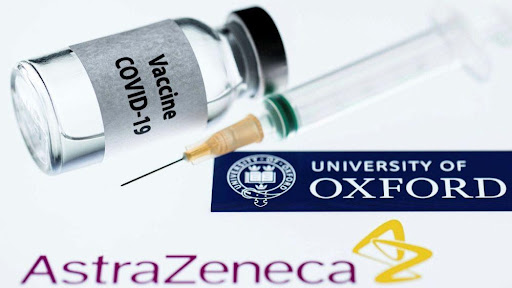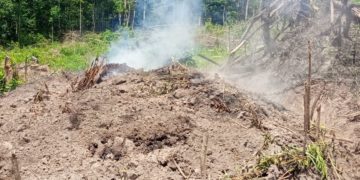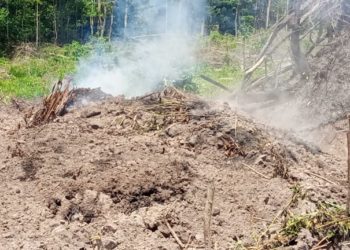
Preliminary data released by Sierra Leone’s National Covid-19 Emergency Response Center (NaCOVERC) reveals that vaccination against Covid-19 is effective, a senior health official said Wednesday.
Dr Tom Sesay, head of the country’s immunisation programme, said out of 1, 340 positive cases recorded through the District Health Information System (DHIS), 1, 290 of the patients had not received any vaccination. Only 26 of the patients had had one dose of the vaccines, he noted, adding that only 4 people had received two doses of the vaccines more than two weeks earlier.
“This is preliminary data…but you can see that overwhelming majority of positive cases are people who are not vaccinated,” said Sesay, who is Manager of the Expanded Programme on Immunization (EPI) in the Ministry of Health and Sanitation (MoHS).
“We want to encourage people that the vaccines are effective and we are getting the results that we are expecting,” he added at a press briefing organized to update the public on the current state of the national response to the pandemic.
Like the rest of the world, Sierra Leone is currently going through the third way of the pandemic, which officials say has been fueled by the rapid spreading ‘Delta’ variant.
The country experienced a spike in cases in June, prompting the reintroduction of restrictive measures, including a nationwide curfew and a ban congregational worship.
The week leading to the declaration of the third wave saw cases go up dramatically, leading to 72 percent of bed occupancy in treatment and care centers, NaCOVERC data showed.
The new cases peaked mid-June with 114 cases a day.
Sheku Fantamadi Bangura, Chairman of the Presidential Taskforce on Covid and head of the NaCOVERC, said latest data suggested that the country had bent the curve and was on course to flatten it. He said not only has the daily new cases dropped, but also hospitalization numbers.
According to NaCOVERC, they implemented a number measures to get to where the country is, including increasing its testing regime from 3, 500 to 5, 500 testing per week.
Bangura said the focus of the response now is on deepening the measures to reach the ultimate goal.
“We are confident that we are flattening this curve…We have been able to put the third wave sincerely under control, but we are still not out of the woods. As far as we are concerned, we believe that the data doesn’t tell us that we are in a red state,” Bangura stressed, referring to ongoing controversy sparked by the UK’s decision to place Sierra Leone on its ‘Red List’ of countries whose nationals were banned from entering its territory.
Officials also dismissed fears created by a recently published findings of a seroprevalence study on Covid which showed that 48 per cent of respondents had been exposed to Covid-19, suggesting an under reporting of the pandemic.
Dr Mohamed Vandi, head of surveillance at NaCOVERC, who was one of the authors of the study, said the result was misinterpreted with the intention of spreading misinformation.
“The report that we got, which has attracted attention, is that NaCOVERC has been under reporting. That is not the case,” said Dr Vandi, who is Director of Health Security and Emergency in the MoHS.
“What the survey is saying is that 48 per cent of those surveyed were exposed to Covid-19 and they have developed antibodies to fight the virus,” he explained.
Vandi said the study outcome emphasized the needed for more testing and wider vaccination coverage, which the NaCOVERC is working on realizing.
“Vaccination is needed to get herd immunity. This virus will be with us for some time. It is going to be another Lassa Fever,” he said, referring to the hemorrhagic fever disease which is endemic in part of the country.
But Sierra Leone has been going through a shortage of vaccine. The authorities however assured that efforts were being made to get more vials into the country.
When Sierra Leone rolled out its vaccination programme back in March, it had two types of the vaccines: the Chinese manufactured Sinopharm and AstraZeneca donated through the UN-supported COVAX facility.
Part of a third consignment of AstraZeneca vaccines donated by South Africa expired.
As at last week, all the available AstraZeneca vaccine stock in the country had finished.
Dr Sesay of the EPI said a new consignment was expected early August. He also said that plans were on course to increase vaccination sites nationwide from 72 to 300, in anticipation of the arrival of additional vaccines.
“We want to ensure that we have more vaccinations sites to ensure that we utilize more vaccines,” he said.



















